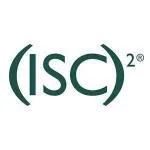Looking to get into Security or Network Administration? TrainACE's Systems Security Certified Practitioner (SSCP) training course is ideal for you.
The SSCP will teach you all you need to know about access controls, administration, auditing and monitoring risk, response and recovery, cryptography, data communication, and malicious code/malware. You will master key security concepts and thoroughly understand all of the SSCP objectives.
Our hands-on training will prepare your for the SSCP certification exam, using lectures, reading assignments and a variety of labs and assessments. You will take away real knowledge and skills that you can apply in interviews and on the job, giving you a strong advantage in the industry.
SSCP Certification satisfies DOD 8570 IAT Level II
Enroll today, by selecting a class' date, to the right
Got Questions?
For more information about your specific needs call us at or complete the form below:
Learn More About SSCP
Jump to:
Class Schedule
| Location | Start | End | Days & Times |
|---|
Why Take SSCP Training?
The Systems Security Certified Practitioner (SSCP) course is ideal for those seeking the SSCP certification or preparing to find a position as a network administrator or a security administrator. This course is focused on several domains, including access controls, administration, auditing and monitoring risk, response and recovery, cryptography, data communication, and malicious code/malware. This course will provide students with virtual interactive lab environments to practice in.
The SSCP course will prepare students to take the SSCP certification exam. Through lectures, reading assignments and a variety of labs and assessments, students will master key security concepts and thoroughly understand all of the SSCP objectives. This program includes hands-on activities and students will take away real knowledge and skills that they can apply in interviews and on the job, giving them a strong advantage in the industry.
This certification course, SSCP – Systems Security Certified Practitioner Training, meets the requirements for DoD Directive 8140 – Cyberspace Workforce Management, and will prepare you to become compliant with this DoD Directive.
Is the SSCP Certification Worth It?
Here are some of the benefits of having an SSCP Certification:
- • Validation of skills – Earning your SSCP certification validates your competence, knowledge, and skills.
- • Increased credibility – An SSCP certification sets you apart from those without certification, enhancing your credibility and marketability.
- • Proof of dedication to the profession – Seeking and earning IT certifications shows that you are dedicated to your career and continuing education.
- • Career advancement – Obtaining an SSCP certification often leads to promotions, pay raises and increased decision-making authority.
- • Increased earning potential – The average salary for SSCP certified professionals is $70,000, with the highest-paid being SSCP certified as well as holding a master’s degree in a related field.
- • More career opportunities – Many organizations are beginning to require that candidates have specific certification even to be considered for hire – including the Department of Defense (DoD). The SSCP certification meets the DoD requirements for security credentials for employees who work in information security, as a DoD employee or a subcontractor.
- • Increased confidence – Earning an SSCP certification will boost your confidence and motivation in your daily work and your career. You will already be on the path to obtaining more advanced certifications like the CISSP and beyond.
Having the SSCP certification is a benefit to any IT security professional. If you are at the beginning of an information security career, the certification will validate your knowledge and skillset in an occupation, technology, and industry. Start your IT career on the right foot with the proper certifications – SSCP is just the beginning of what can be an exciting and lucrative career.
How Much Does an SSCP Make in Washington D.C.?
There are various job roles that someone who has an SSCP certification may be qualified for, so there is a range of potential salaries. According to Indeed, the average salary for SSCP certified professionals in the metro Washington, D.C. area (including parts of Maryland and Virginia) ranges from about $76,500 for someone in the Security Officer role, to $129,000 for Security Engineers.
While the salary you earn when you have your SSCP certification may vary based on the specific position, your experience, and the organization whom you work for, it is a credential that can provide you with significant earning opportunities.
What you need to know before taking SSCP training
The SSCP certification is ideal for those with proven technical skills and practical security knowledge in hands-on operational IT roles. The certification is recommended for those working in or towards positions such as:
- - Network Security Engineer
- - Systems/Network Administrator
- - Security Analyst
- - Systems Engineer
- - Security Consultant/Specialist
- - Security Administrator
- - Systems/Network AnalystDatabase Administrator
Exam and Certification Requirements:
Candidates take a 3 hour exam consisting of 125 multi-choice questions. Candidates must score a minimum of 700 out of 1000 points to pass.
In addition to passing the exam candidates must all have a minimum of 1 years cumulative work experience in one or more of the SSCP's seven domains.
If you do not have the required experience you can become an Associate of (ISC)2 after passing the exam. You then have two years to earn the necessary experience to become a full SSCP practitioner.
Who needs SSCP Certification?
- - Network Security Engineers
- - Systems/Network Administrators
- - Security Analysts
- - Systems Engineers
- - Security Consultant/Specialists
- - Security Administrators
- - Systems/Network AnalystDatabase Administrator
What will I learn in this SSCP class?
Topics & Concepts Covered in SSCP Certification Training Include:
- - Access Controls
- - Analysis and Monitoring
- - Cryptography
- - Malicious Code
- - Networks and Telecommunications
- - Risk, Response, and Recovery
- - Security Operations and Administration
Learning Objectives:
- 1. Understand the different Access Control systems and how they should be implemented to protect the system and data using the different levels of confidentiality, integrity, and availability.
- 2. Understand the processes necessary for working with management and information owners, custodians, and users so that proper data classifications are defined. This will ensure the proper handling of all hard copy and electronic information as it is applied by the Security Operations and Administration.
- 3. The Risk Identification, Monitoring, and Analysis Domain identifies how to identify, measure, and control losses associated with adverse events. You will review, measure, and control losses associated with adverse events. You will review, analyze, select, and evaluate safeguards for mitigating risk.
- 4. Identify how to handle Incident Response and Recovery using consistent, applied approaches including the use of the Business Continuity Plan (BCP) and Disaster Recovery Plan (DRP) concepts in order to mitigate damages, recover business operations, and avoid critical business interruption; and emergency response and post-disaster recovery.
- 5. Identify and differentiate key cryptographic concepts and how to apply them, implement secure protocols, key management concepts, key administration and validation, and Public Key Infrastructure as is applies to securing communications in the presence of third parties.
- 6. Define and identify the Networks and Communications Security needed to secure network structure, data transmission methods, transport formats, and the security measures used to maintain integrity, availability, authentication, and confidentiality of the information being transmitted.
- 7. The Systems and Application Security section identifies and defines technical and non-technical attacks and how an organization can protect itself from these attacks including the concepts in endpoint device security, cloud infrastructure security, securing big data systems, and securing virtual environments.















